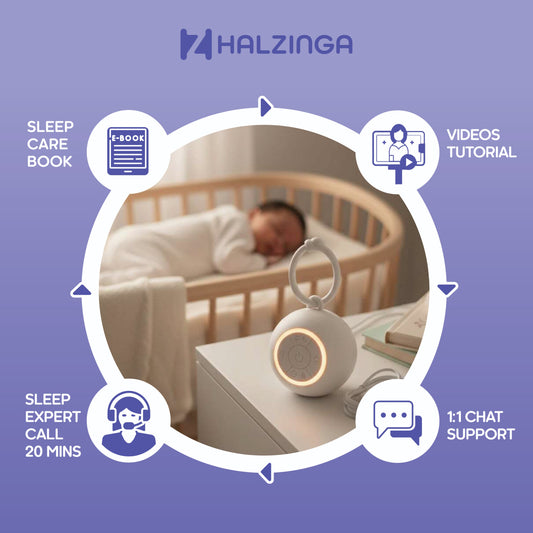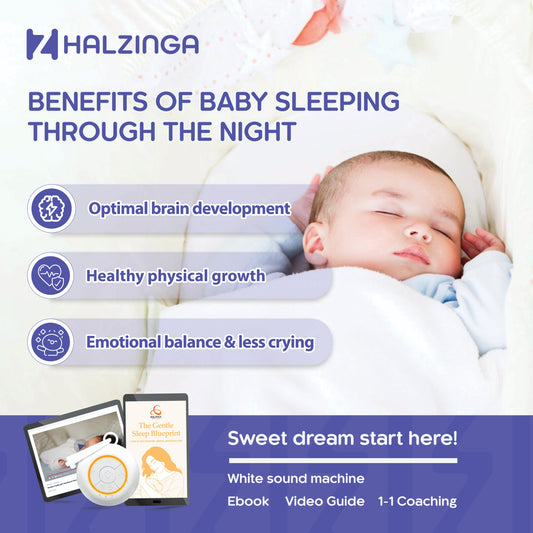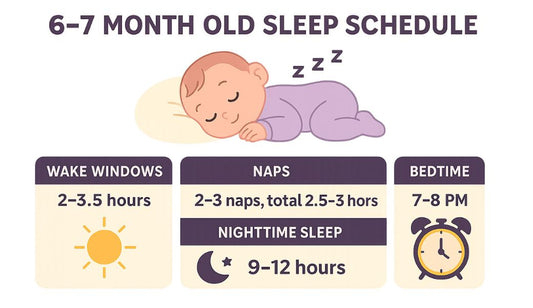
Common Baby Sleep Mistakes Parents Make (and How to Fix Them)
Sleep is one of the biggest challenges for new parents. While babies naturally wake often during the first months of life, many parents unintentionally make small mistakes that can disrupt their child’s sleep patterns even more. From irregular schedules to over-reliance on rocking or feeding, these habits can lead to restless nights for both babies and caregivers. The good news is that most of these sleep mistakes can be corrected with a few consistent changes. Understanding what prevents your baby from resting well and how to fix it can set the stage for healthier sleep routines that benefit the whole family.
Mistake 1: Inconsistent Bedtimes
One of the most common mistakes parents make is putting their baby to bed at a different time each night. Babies thrive on routine, and irregular sleep times can confuse their internal clock. This makes it harder for them to fall asleep and stay asleep.
How to fix it: Aim for a consistent bedtime every evening. Start with a calming routine such as dimming lights, reading a book, or singing a lullaby to signal that bedtime is approaching. Over time, this consistency helps your baby’s body recognize when it is time to rest.
Mistake 2: Overstimulation Before Sleep
Playing active games, exposing babies to bright screens, or engaging in loud activities right before bed can make it difficult for them to wind down. Overstimulation raises alertness and delays sleep.
How to fix it: Create a calm atmosphere in the hour before bedtime. Use soft lighting, gentle voices, and quiet play. Activities like a warm bath or light massage can soothe your baby and prepare them for sleep.
Mistake 3: Relying on Feeding to Fall Asleep
Many parents feed their baby to sleep, which works temporarily but can create a dependency. If your baby always needs a bottle or nursing to drift off, they may wake frequently at night expecting the same conditions.
How to fix it: Feed your baby earlier in the bedtime routine so they learn to fall asleep without relying on it. Place them in their crib drowsy but awake, allowing them to practice self-soothing.
Mistake 4: Letting Overtiredness Build Up
Keeping a baby awake too long may seem like a way to make them sleep more at night, but it often backfires. Overtired babies become cranky and harder to settle, leading to restless nights.
How to fix it: Pay attention to your baby’s wake windows—the time they can comfortably stay awake between naps. For younger babies, this may be just 45 minutes to two hours, while older babies and toddlers can stay awake longer. Recognizing signs of tiredness, like rubbing eyes or fussiness, can help you put them down before overtiredness sets in.
Mistake 5: Too Much Daytime Napping or Too Little
Both extremes can interfere with nighttime rest. Too much napping during the day reduces sleep pressure at night, while too little daytime sleep can lead to an overtired baby who struggles to settle.
How to fix it: Follow age-appropriate nap schedules. For example, newborns may nap several times a day, but by the first birthday most babies transition to two naps. Adjust the length and timing of naps to ensure they complement nighttime sleep rather than disrupt it.
Mistake 6: Not Creating a Sleep-Friendly Environment
A baby’s room plays a huge role in how well they sleep. Bright lights, noise, or an uncomfortable temperature can cause frequent wake-ups.
How to fix it: Keep the room cool, dark, and quiet. Use blackout curtains to block outside light, and consider a white noise machine to mask household sounds. White noise provides a consistent background sound that helps babies transition between sleep cycles without waking. A safe sleep space with a firm mattress and no loose bedding is also essential.
Mistake 7: Skipping a Bedtime Routine
Some parents skip routines altogether, hoping their baby will eventually fall asleep. Without consistent cues, babies may struggle to recognize when it is time to rest.
How to fix it: Establish a predictable routine, even if it is simple. Steps like changing into pajamas, dimming lights, or singing a familiar song help signal that bedtime has arrived. Repetition makes these cues powerful sleep triggers.
Mistake 8: Frequently Changing Sleep Locations
Naps in the stroller one day, the car seat the next, and the crib occasionally can make it hard for babies to associate one place with sleep.
How to fix it: Whenever possible, keep naps and nighttime sleep in the same safe environment, such as the crib or bassinet. This consistency reinforces the connection between that space and rest.
Mistake 9: Picking Up Immediately at Every Sound
Babies naturally stir and make noises during their sleep cycles. Parents often rush in too quickly, which can unintentionally wake the baby fully.
How to fix it: Pause and observe before intervening. Sometimes babies will resettle on their own within a minute or two. By giving them the chance, you support their ability to self-soothe.
Mistake 10: Expecting Sleep to Be Perfect Too Soon
Parents sometimes assume that by a certain age, babies should sleep through the night. Every child is different, and sleep patterns continue to evolve well into toddlerhood.
How to fix it: Manage expectations and remember that night waking is normal in the first two years. Focus on building consistent routines and creating a healthy sleep environment rather than striving for perfection. Over time, sleep naturally improves.
Final Thoughts
Many of the most common baby sleep mistakes are simple habits that parents fall into without realizing their impact. The good news is that with small, consistent adjustments, you can help your baby sleep more peacefully and set the foundation for long-term healthy rest. By avoiding overtiredness, establishing routines, creating a soothing sleep space, and allowing your baby to self-soothe, you make sleep easier for your child and for yourself. Remember that progress takes time, but every step toward better sleep brings benefits for your baby’s health, mood, and development—and much-needed rest for parents too.








